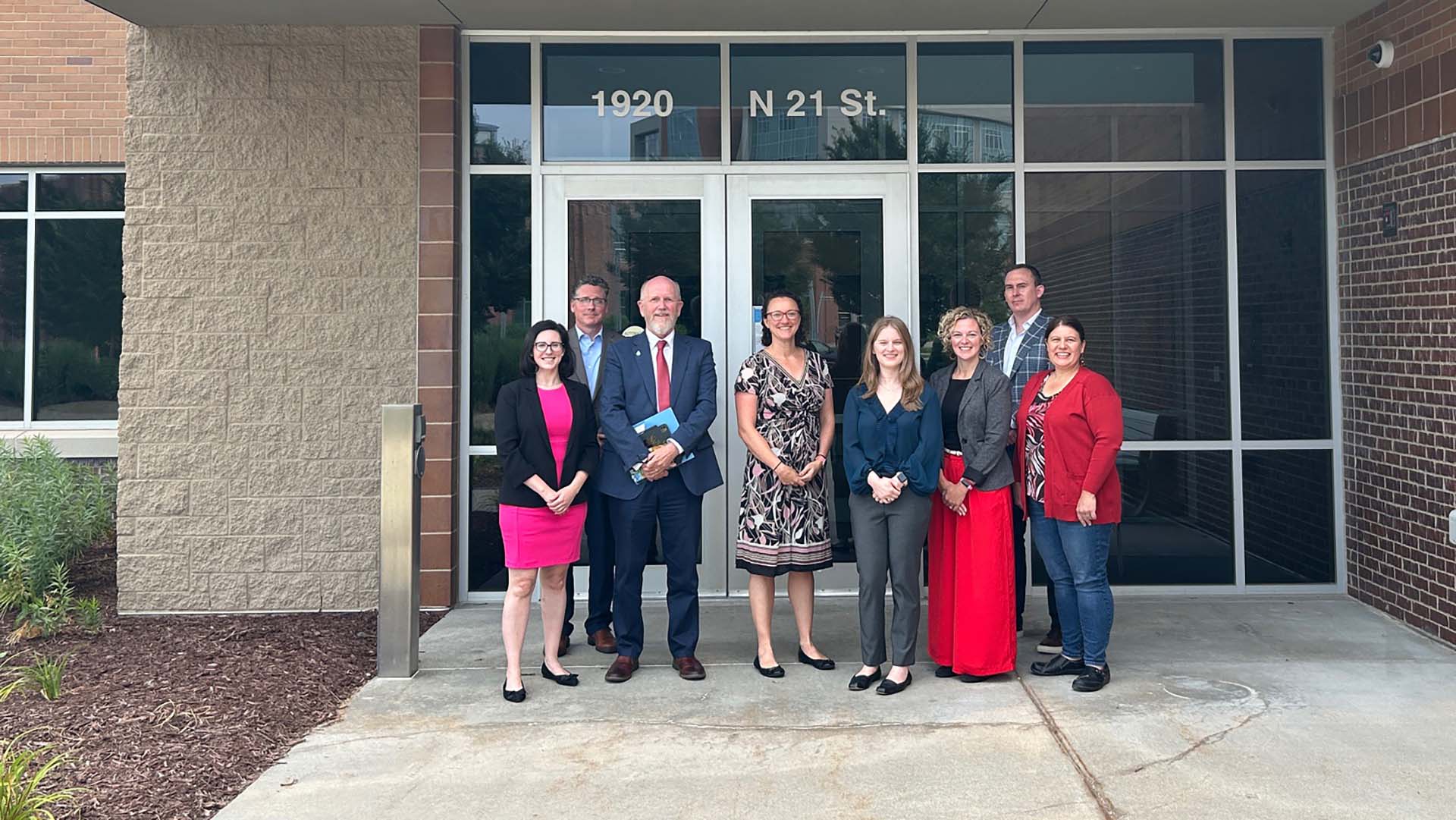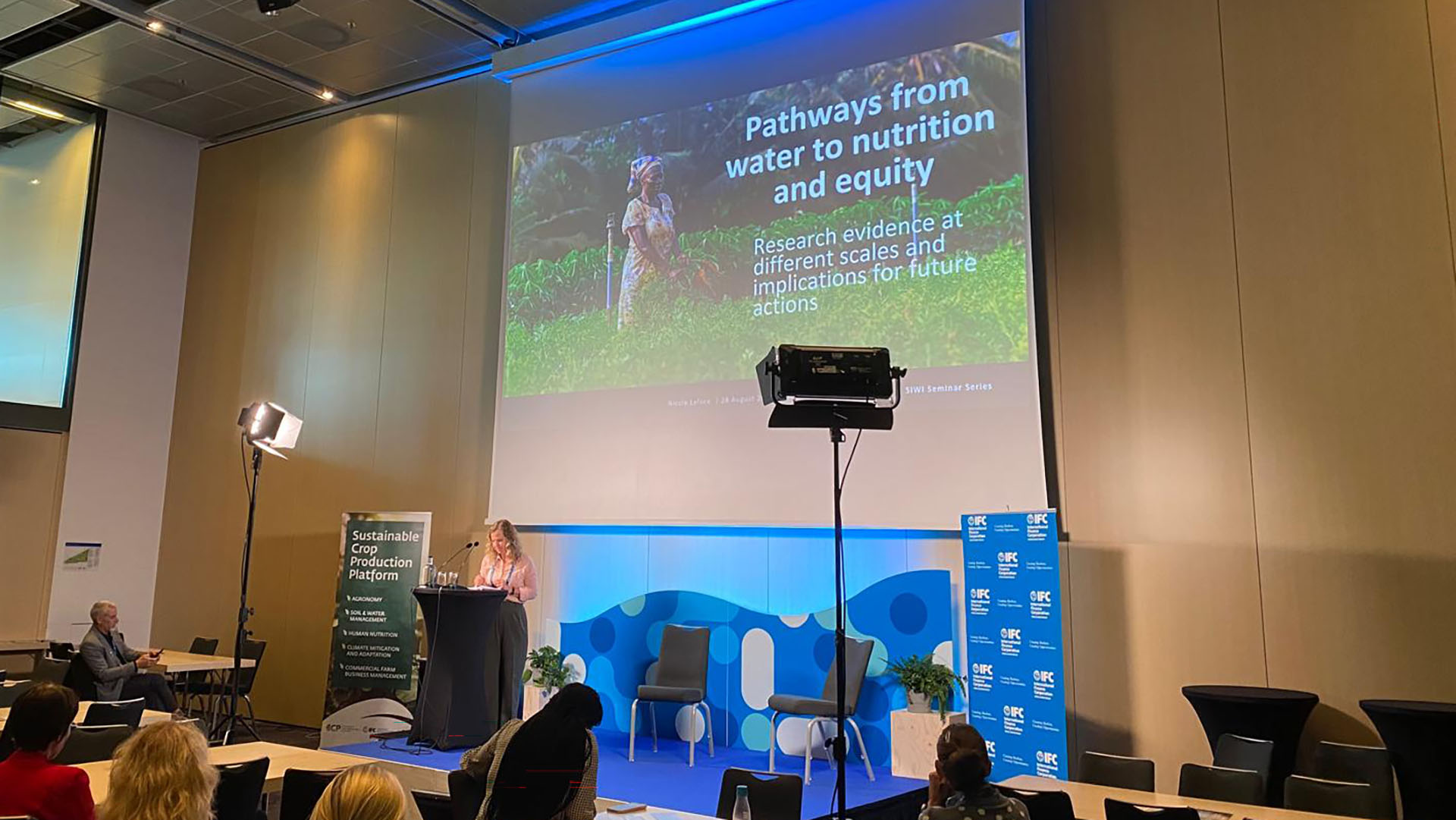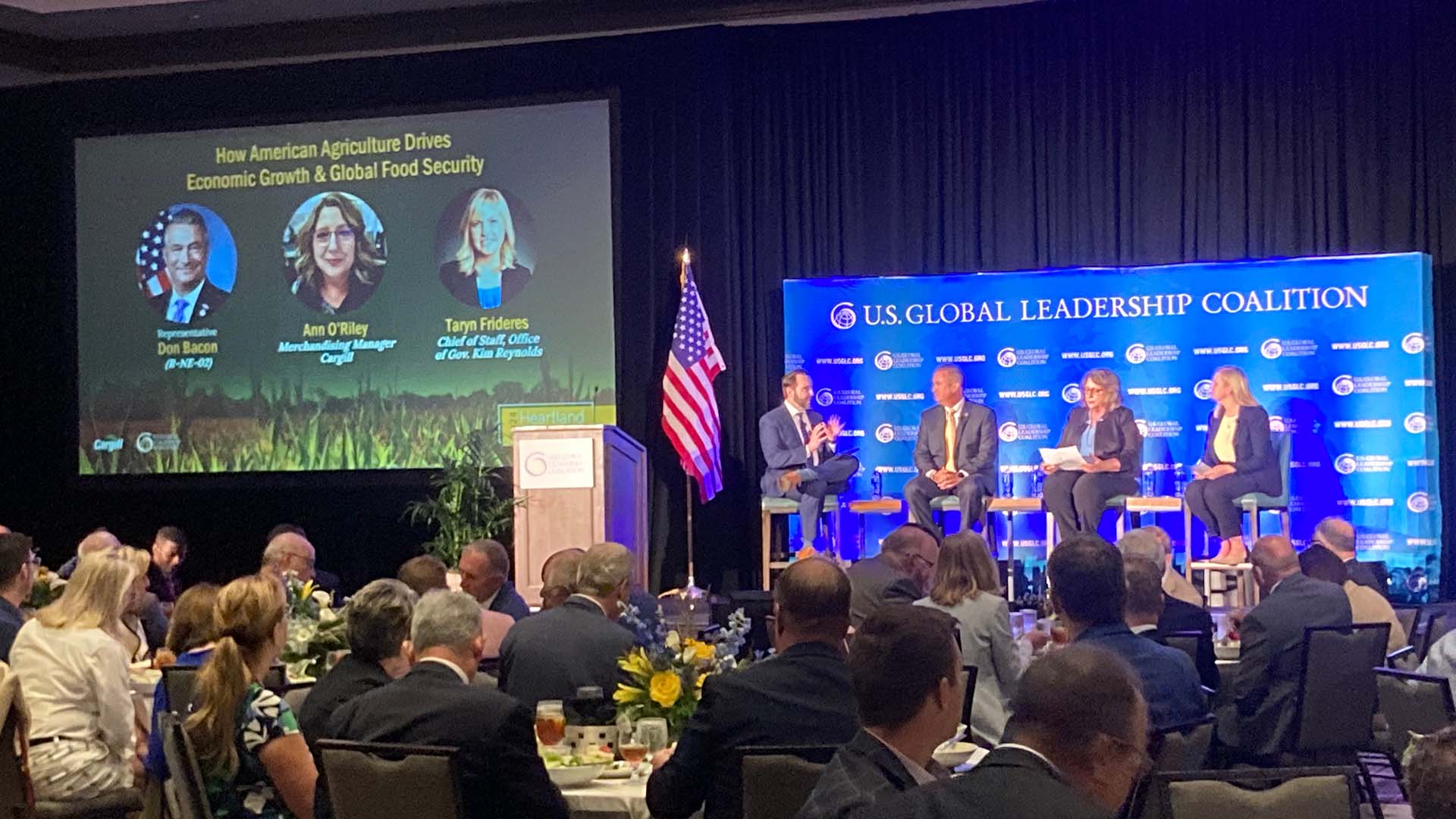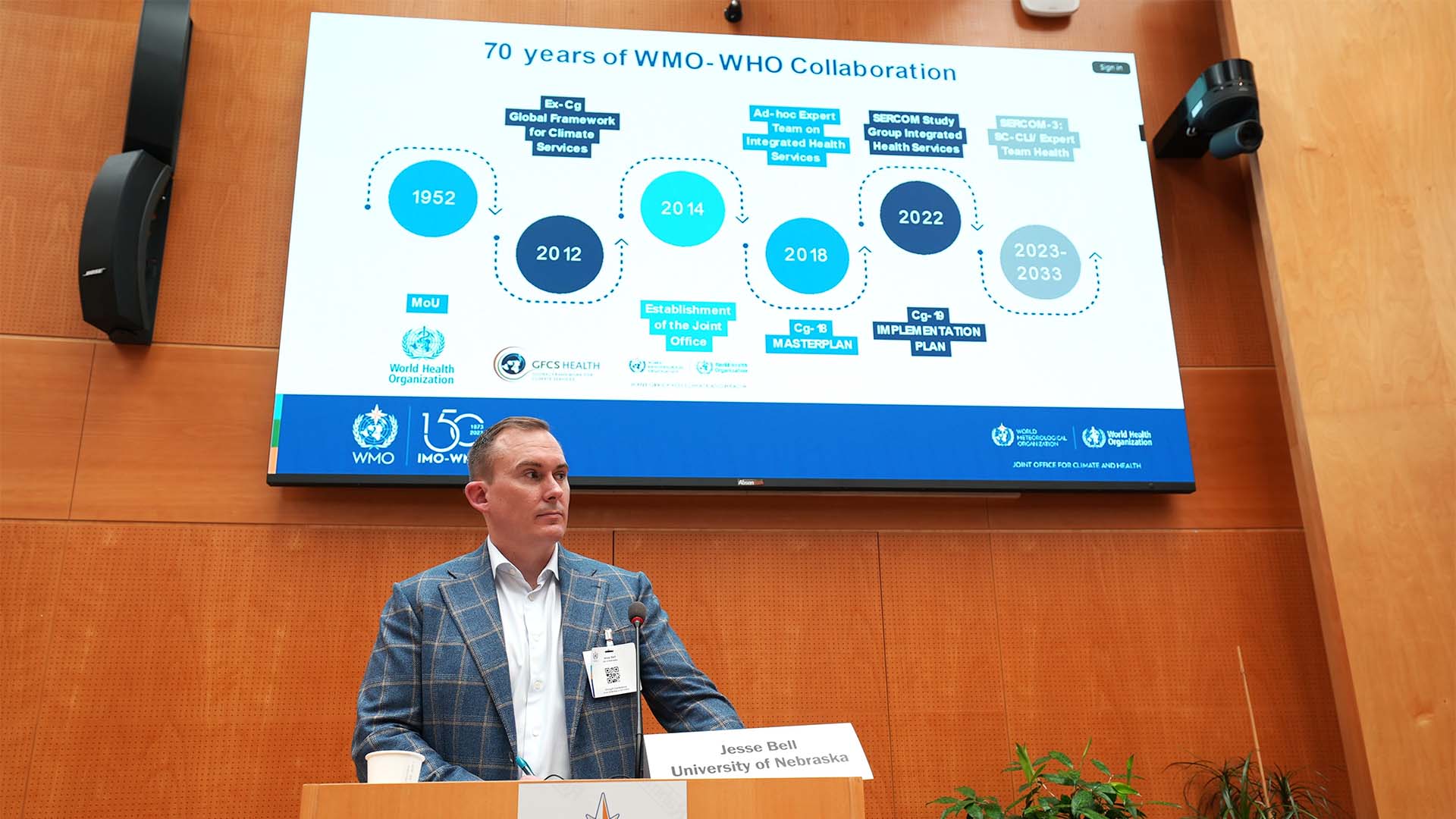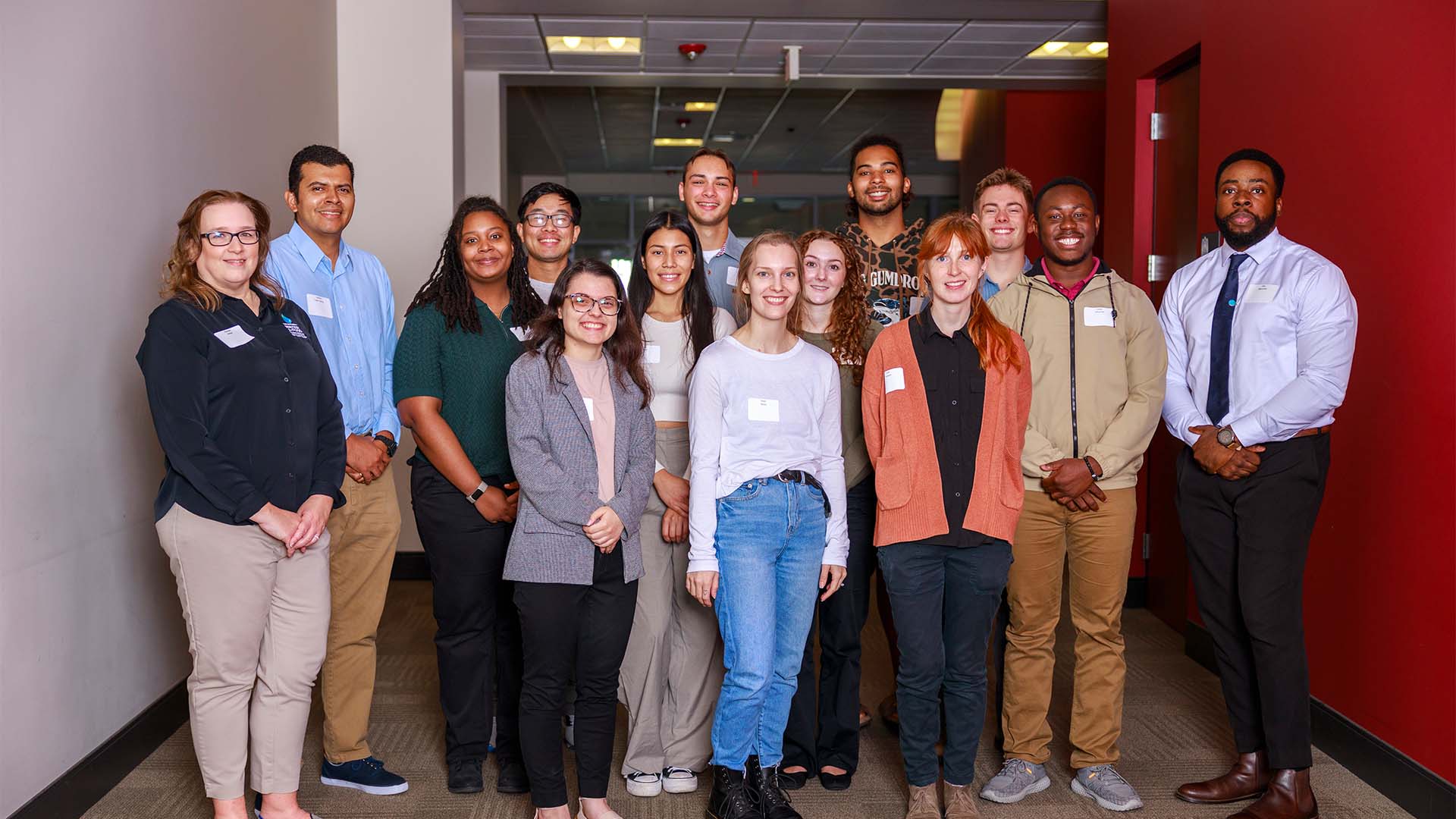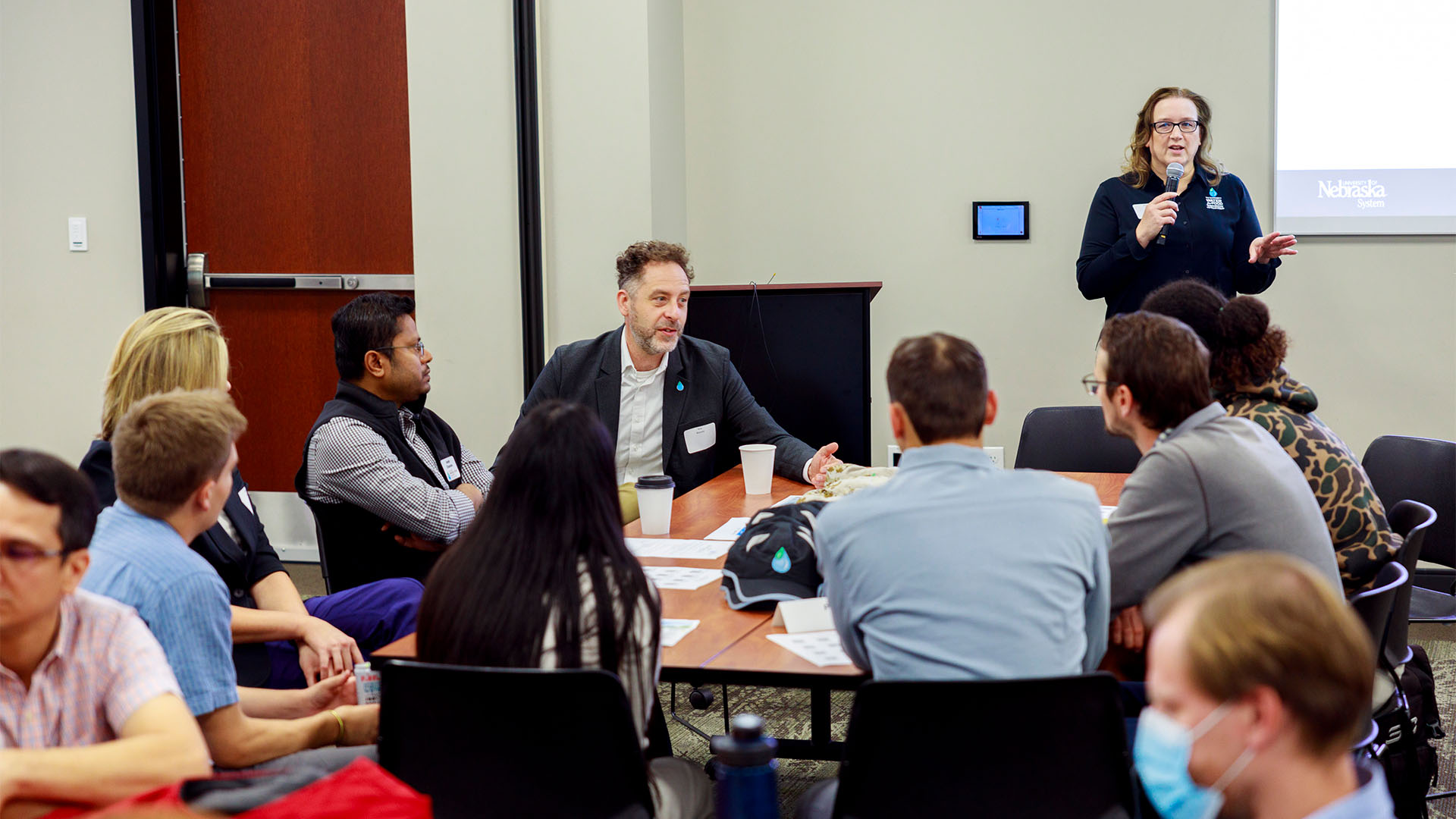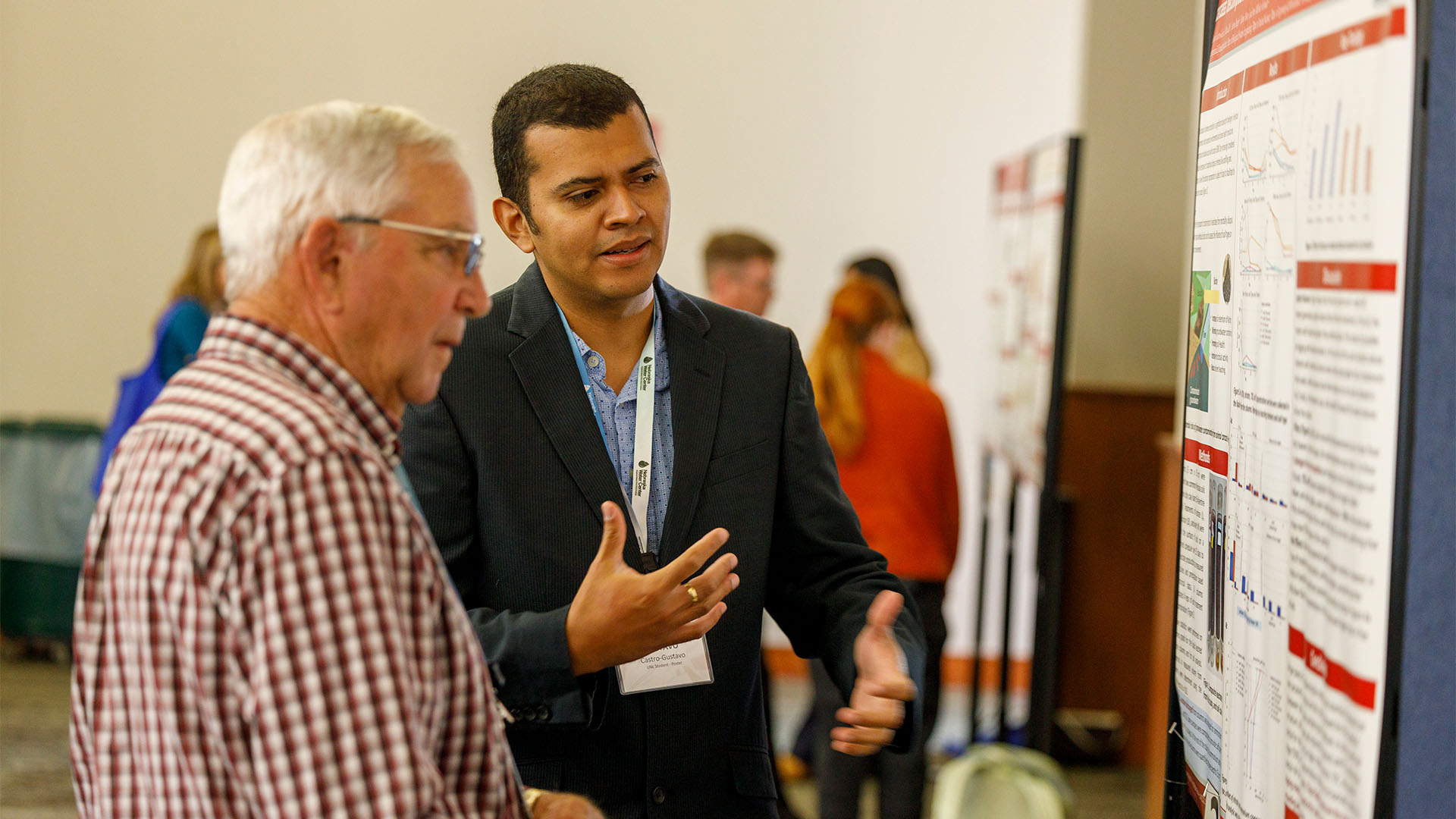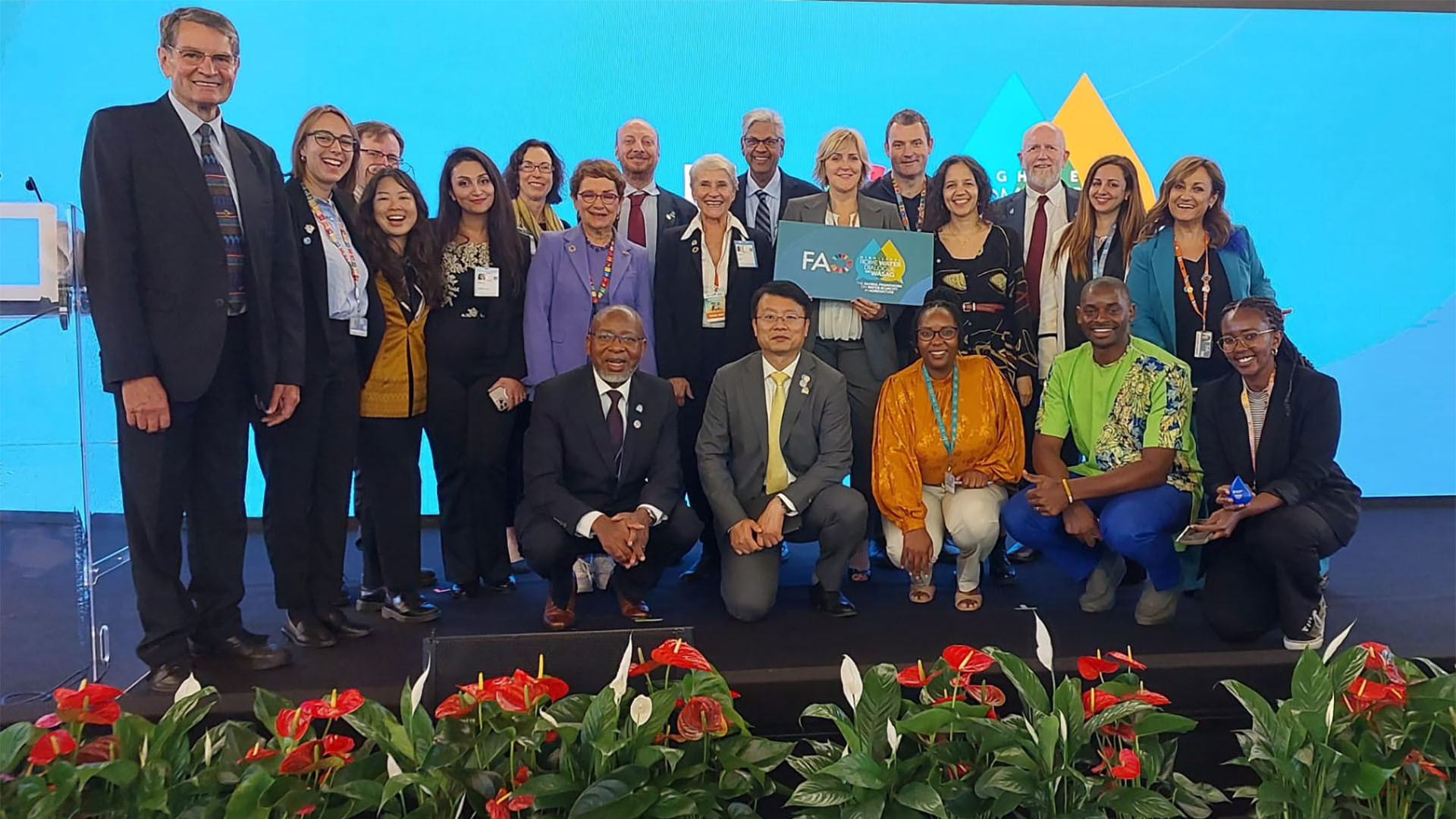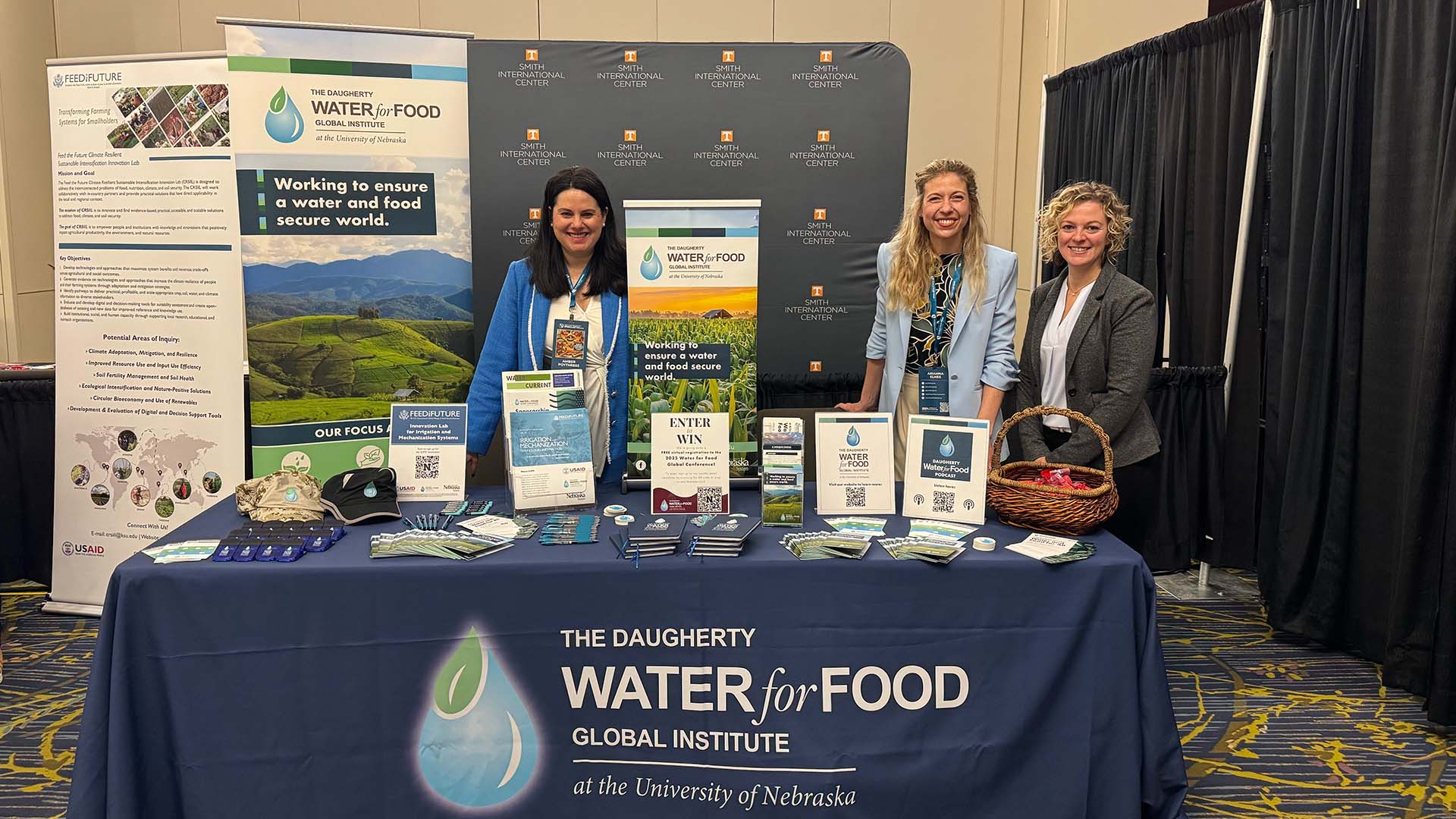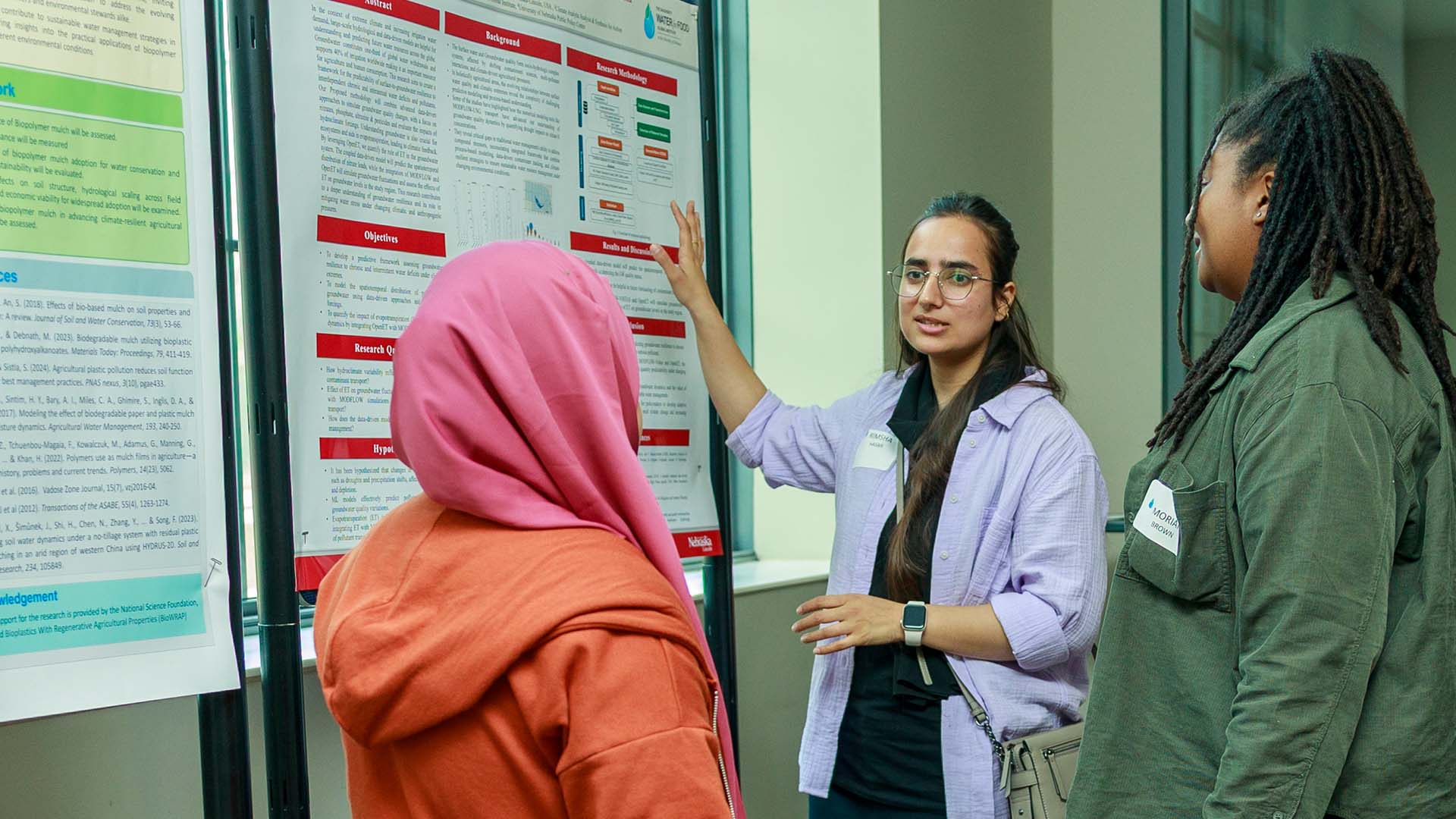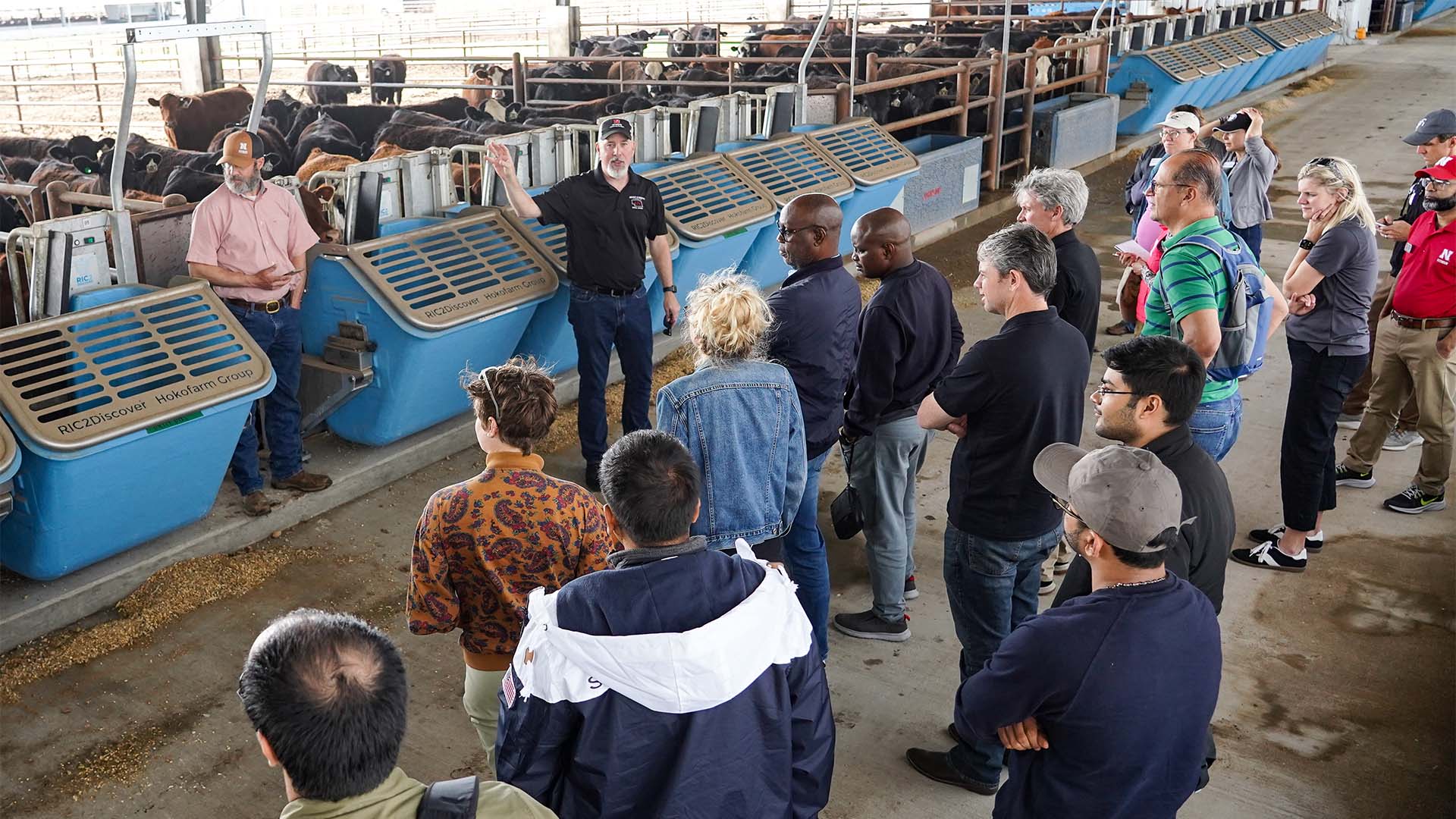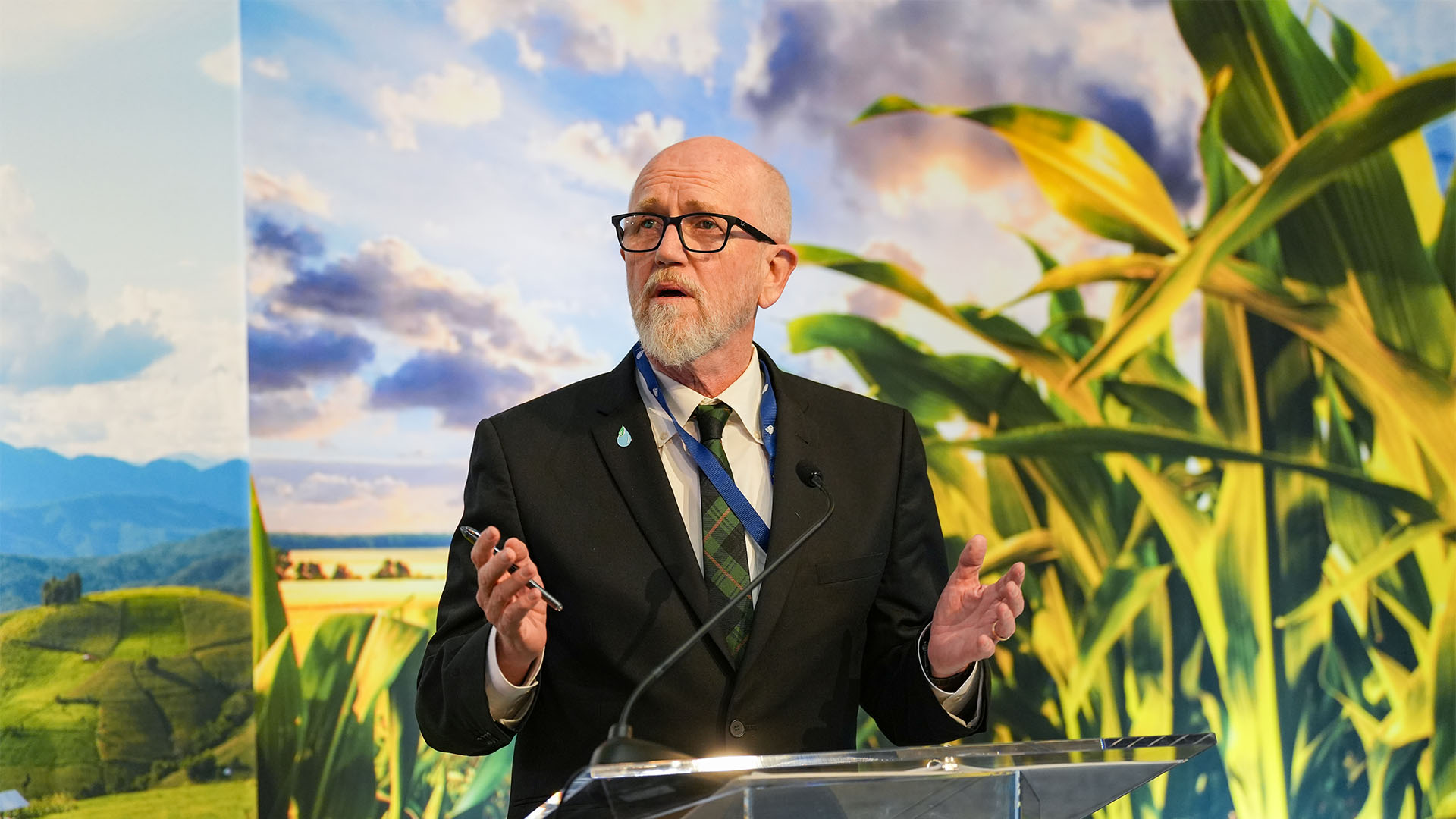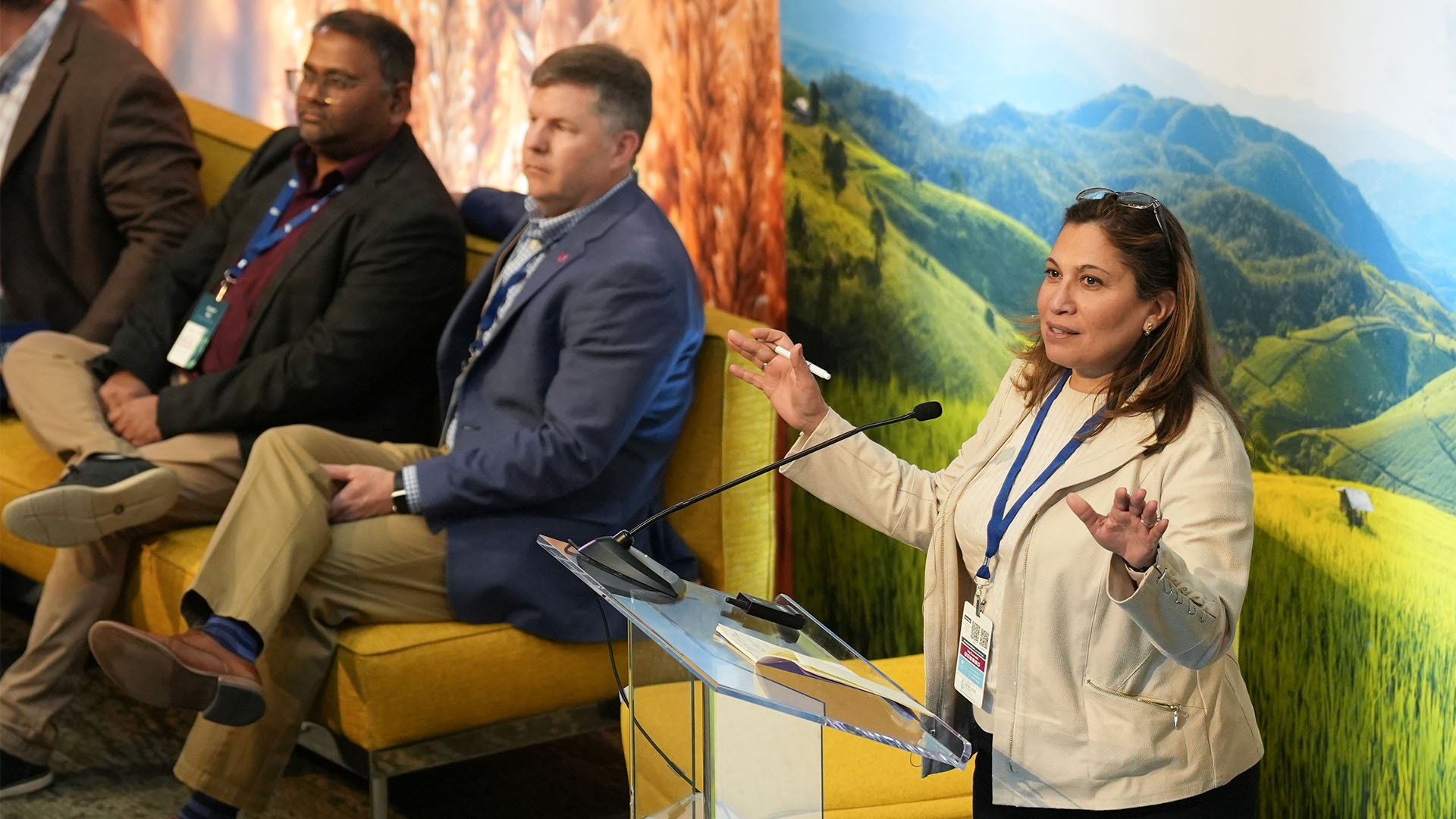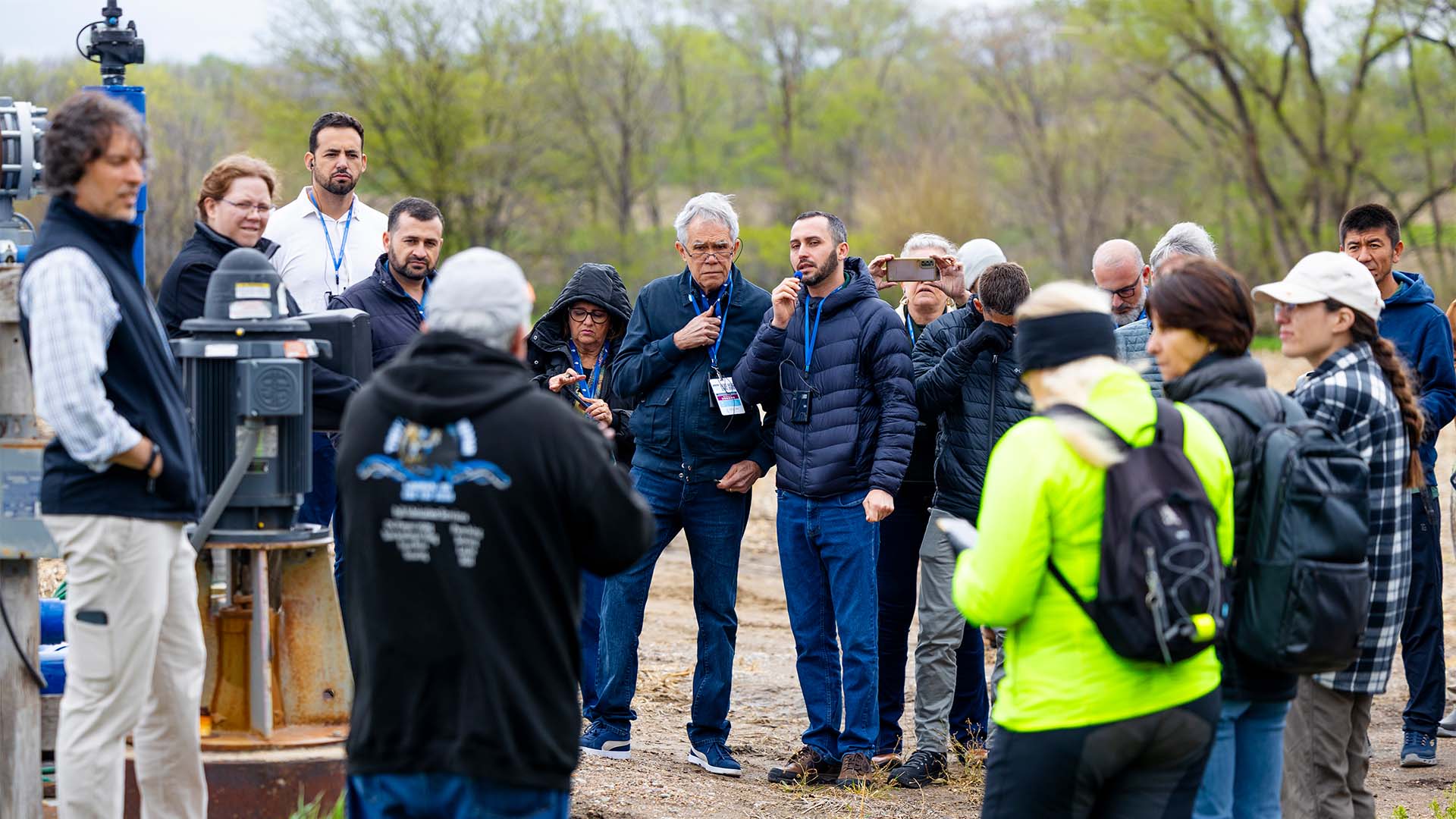DWFI leverages the expertise of the University of Nebraska and extends it with strong state, national and international partnerships. To foster these relationships and build new strategic partnerships, the DWFI team attends industry conferences, participates in international meetings and accepts speaker invitations as their capacity allows. The following are just some of the key conferences, events and meetings in which DWFI staff participated over the past year.
Agtech Connect - July 17, 2024 - Lincoln, Nebraska
DWFI sponsored and hosted a roundtable discussion at the Agtech Connect Conference, July 17, 2024. The conference is hosted by The Combine and Invest Nebraska and held at Nebraska Innovation Campus. It is designed to foster connection and innovation among investors, founders and producers in the AgTech space in the Midwest.
Heartland Summit hosted by the US Global Leadership Coalition - August 23 2024 - Omaha Nebraska
DWFI was invited to attend and host a booth at the 2024 Heartland Summit hosted by the U.S. Global Leadership Coalition. Amid rising global challenges, the 2024 Heartland Summit examined the value of America's global leadership - including diplomacy and development programs - to the national and economic security of communities throughout the Heartland.
World Water Week - August 25-29 2024 - Stockholm Sweden
DWFI co-convened and participated in several sessions at World Water Week 2024. The theme, Bridging Borders: Water for a Peaceful and Sustainable Future recognized the regional and global interconnectivity of communities and nations, and underscored the collaborative effort needed to achieve a peaceful and sustainable future. DWFI Associate Director of Sustainable Agriculture Water Management Nicole Lefore was invited to serve as a member of the Scientific Programme Committee for the conference, which attracts about 15,000 participants from nearly 200 countries and territories each year. Along with partners, which included the World Wildlife Fund and the Nature Conservancy, DWFI also co-hosted a “Nature Hub” exhibition booth at the conference, further extending the institute’s reputation as a leader in global water and food water security.
Director of Research, Christopher Neale, gave a presentation in the session “Managing water from the ground up: Challenges and opportunities” convened by DWFI and partners. The presentation was titled “Climate Modeling and Remote Sensing to Inform Governance of Irrigated Agricultural Expansion in Mato Grosso, Brasil” and included our partners in the Mato Grosso project.
Africa Food Systems Forum - September 2 2024 - Kigali Rwanda
Kicking off a USAID-supported series called, "African Irrigation Policy Dialogue Series: Supporting food security, nutrition and climate resilience in the post-Malabo Agenda," Nicole Lefore was part of a session at the Africa Food Systems Forum with speakers from IFPRI, the Africa Union Commission, USAID, AGRA, World Bank, YALLA YALLA, and International Water Management Institute (IWMI)- South Africa, which identified key topics for discussion in the Series as well as key areas for support on irrigation development.
Drought 10 High Level Meeting on National Drought Policy - September 20-October 2 2024
DWFI contributed to several sessions at the Drought +10 High Level Meeting on National Drought Policy. Organized by the World Meteorological Organization (WMO), the Secretariat of the United Nations Convention to Combat Desertification (UNCCD), the Food and Agriculture Organization of the United Nations (FAO), and other UN agencies, the Drought +10 Meeting brings together countries, experts, and practitioners to scale up and accelerate drought action on the ground. Jesse Bell, DWFI’s Director of Water, Climate, and Health led a plenary session at the conference highlighting the often-overlooked health consequences of drought. Highlighting the need for cross-sector collaboration in drought preparedness and response, the session featured efforts from organizations around the globe to integrate health into drought planning, educate public health professionals and healthcare providers on mitigating drought-related health risks, and engage stakeholders at local, national, and international levels. The insights gained at the Drought +10 Meeting shaped the negotiations at the UNCCD’s sixteenth session of the Conference of the Parties (COP16) held in December 2024 in Riyadh, Saudi Arabia.
DWFI Fall Welcome - September 24 2024 - Lincoln Nebraska
DWFI hosted its annual fall welcome event ushering DWFI supported students into a new academic year at the University of Nebraska. DWFI Executive Director Peter McCornick kicked off the event with an introduction to the organization’s mission. DWFI supported students and their faculty advisors then participated in structured networking with each of DWFI teams to learn more about what it means to be part of the institute. DWFI Director of Research Christopher Neale shared an overview of DWFI’s significant research impacts and outputs. DWFI Director of Communications and Public Relations Frances Hayes closed the event by discussing how students can communicate the future impact of their research.
Nebraska Water Conference - October 9-10 2024 - Lincoln Nebraska
The Nebraska Water Center hosted the annual Nebraska Water Conference with a theme of “Collaboration and Innovation in Nebraska Water.” Held at the Nebraska Innovation Campus conference center, the two-day event featured discussions on emerging contaminants, drought preparedness, nutrient management, climate smart practices, water and climate resilience, and modeling. Experts from the state and region shared their work and led discussions on future opportunities for innovative partnerships.
FAO High-Level Rome Water Dialogue on WASAG and World Food Forum - October 14-18 2024
DWFI Executive Director Peter McCornick participated in the High-Level Rome Water Dialogue, which took place on the sidelines of the annual World Food Forum hosted by the Food and Agriculture Organization of the United Nations (FAO). At the event, ministers, heads of delegations and partners of the FAO Global Framework on Water Scarcity in Agriculture (WASAG) adopted the Rome Declaration on Water Scarcity in Agriculture. The declaration addresses the urgent issue of water scarcity exacerbated by the climate crisis and emphasizes the need for global collaboration and resource mobilization to tackle the impact of water scarcity on food security. McCornick is a founding member of the WASAG initiative and has served on its steering committee since its inception in 2016. As an outgoing member of the WASAG steering committee, McCornick and DWFI provided support for the declaration and WASAG's new governance structure, in which the steering committee will be composed solely of United Nations member countries. DWFI has supported involvement by United States partners in the initiative, including collaborating with the USDA Foreign Agricultural Service, the U.S. Mission to the United Nations Agencies in Rome, and other partners, to host a side session to showcase U.S. capacities at a WASAG technical meeting in April 2024. The United States federal government agreed to join the WASAG steering committee once the new structure is in place.
World Food Prize Borlaug Dialogue - October 29-31 2024 - Des Moines Iowa
Six DWFI staff attended the Norman E. Borlaug International Dialogue in Des Moines, Iowa and hosted an exhibitor booth. The event, also known as the "Borlaug Dialogue," gathers world leaders and top experts in development, agriculture, economic policy, resource management and nutrition – all inspired by the historic legacy of Norman Borlaug and the achievements of the World Food Prize Laureates in fighting global hunger. More than 1,200 individuals from more than 65 countries attended this year's event. Throughout the three days, DWFI connected with existing partners, engaged with new potential collaborators and heard inspiring talks from global leaders in water and food security.
Nebraska Natural Resources Districts Legislative Conference - January 28-29 2025 - Lincoln Nebraska
DWFI and the Nebraska Water Center (NWC) participated in the 2025 Nebraska Natural Resources Districts (NRD) Legislative Conference and served as a conference sponsor. DWFI staff presented in several conference sessions and hosted other university administrators and faculty to grow their relationships with Nebraska water managers. Connecting with NRD elected officials and staff, other state and local agencies, and supporting private companies is a hallmark of this event.
Nebraska Water Center Spring Seminar Series - Spring 2025 - Lincoln Nebraska
The Nebraska Water Center (NWC), in partnership with the University of Nebraska-Lincoln’s School of Natural Resources, once again hosted its annual Spring Water Seminar Series. The 2025 series considered innovations driving safe and secure water in Nebraska and beyond. Established in 1968, the series provides a forum to increase awareness and allow for meaningful conversation regarding these issues and is a cornerstone of NWC’s mission to help the University of Nebraska become an international leader in water research, teaching, extension, and outreach.
Water for Food Research Forum - April 9 2025 - Lincoln Nebraska
DWFI hosted its annual Water for Food Research Forum, which showcases research from DWFI supported students and their Faculty Fellow mentors. With projects ranging in applications for high productivity agriculture, smallholder farming, and water quality, the students are addressing questions around how we can produce more food for a growing population with less pressure on our water resources.
11th World Water Forum Kick-Off Meeting - April 14-15 2025 - Riyadh Saudi Arabia
DWFI’s Director of Research Christopher Neale and Director of Policy Nick Brozović attended the 1st Stakeholders’ Meeting for the 11th World Water Forum to be held in 2027. DWFI played a large role in the 10th World Water Forum in Indonesia in 2025. DWFI is a member organization of the WWC and DWFI Executive Director Peter McCornick is currently serving his second three-year term as one of 35 members of the WWC Board of Governors, with Neale as an alternate. DWFI would have concluded its final term on the Board of Governors at the end of 2025, however, the Board of Governors has extended the present member composition until the next World Water Forum in Saudi Arabia, 2027. The institute will continue as a member organization of the WWC.
Water for Food Global Conference - April 28-May 2 2025 - Lincoln Nebraska
The 2025 Water for Food Global Conference gathered over 350 attendees from 23 countries to address resiliency in water and food security. The conference focused on innovative solutions, research, and technologies for sustainable food production while preserving water resources, emphasizing collaboration across sectors to enhance agricultural productivity, promote resilient farming, and safeguard water. Key discussions included improving water use efficiency, sustainable farming practices, smallholder irrigation, and policy frameworks for responsible water management.
COOKIE USAGE:
The University of Nebraska System uses cookies to give you the best online experience. By clicking "I Agree" and/or continuing to use this website without adjusting your browser settings, you accept the use of cookies.


